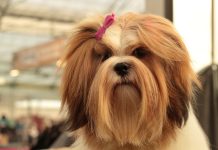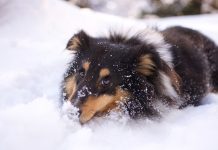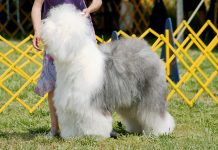History and Origins of the Chihuahua Breed:

The Chihuahua is a small breed of dog that originated in Mexico, specifically in the state of Chihuahua, from which it takes its name. The breed’s exact origins are shrouded in mystery and legend, but it is believed to be one of the oldest and smallest breeds of dogs in the world. The Chihuahua is thought to have descended from ancient Techichi dogs, which were kept by the ancient Toltec civilization in Mexico around 9th century AD.
The Techichi dogs were believed to have been companion animals and were often depicted in ancient Mexican artwork. When the Aztecs conquered the Toltecs, they continued to breed and keep these small dogs, using them for companionship, warmth, and even religious purposes. The Aztecs believed that the Techichi dogs had mystical powers and were protectors of the afterlife.
After the Spanish Conquest of Mexico in the 16th century, the Techichi dogs were crossed with small European breeds brought by the Spanish explorers, such as the Spanish bichon and the terrier. This crossbreeding likely contributed to the modern Chihuahua’s smaller size and distinctive appearance.
The Chihuahua breed as we know it today began to gain popularity in the late 19th century, particularly in the United States. The breed was recognized by the American Kennel Club (AKC) in 1904, and since then, it has become one of the most popular toy breeds worldwide.
Physical Characteristics and Appearance of Chihuahuas:
Chihuahuas are characterized by their small size, alert expression, and distinctive apple-shaped head. Here are some key physical characteristics and traits of Chihuahuas:
- Size: Chihuahuas are one of the smallest dog breeds, with an average height of 6 to 9 inches (15 to 23 cm) at the shoulder and a weight ranging from 2 to 6 pounds (1 to 3 kg). Some Chihuahuas may be even smaller or slightly larger, depending on their genetics.
- Body: Chihuahuas have a compact and well-proportioned body, with a slightly longer body than height. They have a level topline and a graceful, elegant appearance.
- Head: The head of a Chihuahua is a defining feature, with a rounded skull and a prominent stop (forehead). The muzzle is short and pointed, and the ears are large, erect, and held erect when the dog is alert.
- Eyes: Chihuahuas have large, expressive eyes that are typically dark in color. The eyes are round and set well apart, giving the dog a bright and intelligent expression.
- Coat: Chihuahuas have two coat varieties: smooth coat and long coat. The smooth coat is short, glossy, and close-fitting, while the long coat is soft, straight, and flowing. Both coat types come in a variety of colors and patterns, including solid colors, bi-colors, tri-colors, and markings such as brindle or sable.
- Tail: The tail of a Chihuahua is moderately long and carried high, with a slight curve or sickle shape. The tail is often held over the back or to the side when the dog is alert or excited.
- Temperament: Chihuahuas are spirited, lively, and courageous dogs with a big personality. Despite their small size, they are confident and fearless, often displaying a strong bond with their owners. Chihuahuas can be affectionate and loyal companions but may be wary of strangers and exhibit a “big dog” attitude.
Overall, Chihuahuas are charming and charismatic dogs that make excellent companions for individuals and families alike. Their small size, portable nature, and lively personality make them well-suited for apartment living and traveling. With proper care, socialization, and training, Chihuahuas thrive as loving and devoted pets, bringing joy and laughter to their human companions.
Chihuahua Temperament and Personality Traits
Chihuahuas are small dogs with big personalities, known for their lively and spirited demeanor. Understanding their temperament and addressing their training and socialization needs are essential for raising a well-adjusted and well-behaved Chihuahua. Here’s a closer look at the temperament and training requirements for Chihuahuas:
Temperament and Personality Traits:
- Alert: Chihuahuas are naturally alert and vigilant dogs. They have keen senses and are quick to alert their owners to any perceived threats or unfamiliar noises. This trait makes them excellent watchdogs despite their small size.
- Confident: Despite their diminutive stature, Chihuahuas are confident and self-assured dogs. They often display a “big dog” attitude, approaching life with boldness and curiosity.
- Loyal: Chihuahuas form strong bonds with their owners and are intensely loyal companions. They thrive on human interaction and enjoy being close to their family members.
- Courageous: Chihuahuas are surprisingly courageous dogs, willing to stand their ground and defend themselves or their loved ones when necessary. Their bravery can sometimes lead to fearlessness or even stubbornness.
- Affectionate: Chihuahuas are affectionate and loving dogs that enjoy cuddling and spending quality time with their owners. They often seek out physical contact and affectionate gestures.
- Energetic: Despite their small size, Chihuahuas are energetic and lively dogs. They enjoy playtime and interactive activities and benefit from regular exercise to burn off excess energy.
Training and Socialization Needs:
- Early Socialization: Chihuahuas benefit from early and consistent socialization to help them become well-adjusted and confident adults. Introduce them to various people, places, sounds, and experiences from a young age to prevent fearfulness or timidity.
- Positive Reinforcement: Chihuahuas respond well to positive reinforcement training methods. Use rewards such as treats, praise, and play to motivate and encourage desired behaviors. Avoid harsh or punitive training techniques, as they can undermine the trust and confidence of sensitive Chihuahuas.
- Obedience Training: Teach basic obedience commands such as sit, stay, come, and heel to establish boundaries and manners. Keep training sessions short, fun, and engaging to hold the attention of your Chihuahua.
- Housetraining: Consistent and patient housetraining is essential for Chihuahuas, especially due to their small size and delicate nature. Use a designated potty area, establish a routine, and reward successful elimination to reinforce good bathroom habits.
- Socialization with Other Dogs: Chihuahuas can be wary or defensive around unfamiliar dogs due to their natural protective instincts. Gradually introduce your Chihuahua to other dogs in controlled settings to promote positive interactions and prevent aggression or fear-based behavior.
- Handling and Grooming: Get your Chihuahua accustomed to handling and grooming from a young age. Regularly brush their coat, clean their ears, trim their nails, and brush their teeth to maintain their health and appearance.
- Supervision and Safety: Due to their small size, Chihuahuas require supervision and protection from potential hazards, including larger dogs, rough play, and high places. Provide a safe and secure environment to prevent accidents and injuries.
By providing early socialization, positive reinforcement training, and consistent guidance, you can help your Chihuahua develop into a well-mannered and well-adjusted companion. With patience, love, and proper care, Chihuahuas can thrive as loyal and affectionate family members, bringing joy and companionship to their owners for many years to come.
Health Considerations and Common Issues in Chihuahua Dogs:
Chihuahuas are generally healthy and long-lived dogs, but like all breeds, they may be prone to certain health conditions. Understanding these potential issues and providing appropriate care are important for ensuring the health and well-being of your Chihuahua. Here are some common health considerations and issues in Chihuahua dogs:
- Dental Problems: Chihuahuas are prone to dental issues such as dental decay, tartar buildup, and tooth loss. Their small mouths and crowded teeth make them susceptible to dental disease. Regular brushing, dental cleanings, and providing dental chews can help maintain good oral hygiene.
- Hypoglycemia: Chihuahuas have a high metabolic rate and may be prone to episodes of hypoglycemia (low blood sugar), especially as puppies. Signs of hypoglycemia include weakness, lethargy, trembling, and seizures. Feeding small, frequent meals and monitoring blood sugar levels are essential for preventing and managing hypoglycemic episodes.
- Patellar Luxation: Patellar luxation is a condition where the kneecap (patella) dislocates or shifts out of its normal position. Chihuahuas are predisposed to patellar luxation due to their small size and conformation. Mild cases may not require treatment, but severe cases may require surgical correction.
- Collapsed Trachea: Chihuahuas are prone to tracheal collapse, a condition where the cartilage rings that support the trachea weaken or collapse, leading to breathing difficulties, coughing, and respiratory issues. Using a harness instead of a collar for leash-walking and avoiding activities that strain the neck can help prevent tracheal collapse.
- Heart Problems: Chihuahuas may be susceptible to heart conditions such as mitral valve disease (MVD) and patent ductus arteriosus (PDA). Regular veterinary check-ups, heart screenings, and appropriate medical management can help detect and manage heart issues in Chihuahuas.
- Eye Problems: Chihuahuas are prone to various eye conditions, including progressive retinal atrophy (PRA), cataracts, and dry eye (keratoconjunctivitis sicca). Regular eye examinations and prompt treatment are important for preserving vision and preventing complications.
Living with a Chihuahua: Suitable Environments and Lifestyle Considerations:
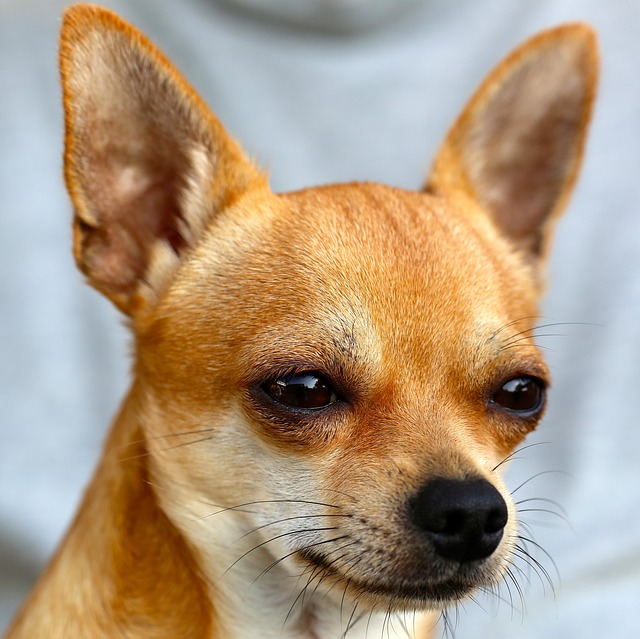
Chihuahuas are adaptable dogs that can thrive in various living environments, but they have specific needs and considerations that prospective owners should be aware of. Here are some factors to consider when living with a Chihuahua:
- Size and Space: Chihuahuas are small dogs that can comfortably live in apartments or homes with limited space. They enjoy being close to their owners and can thrive in indoor environments.
- Temperature Sensitivity: Chihuahuas are sensitive to cold temperatures due to their small size and short coat. Provide them with warm bedding, clothing, and shelter during cold weather to prevent hypothermia.
- Exercise Needs: Despite their small size, Chihuahuas are active and energetic dogs that require daily exercise. Short walks, play sessions, and indoor games can help meet their exercise needs and prevent obesity.
- Socialization: Chihuahuas benefit from early socialization to prevent shyness or fearfulness around strangers, children, and other pets. Expose them to various people, animals, and environments in a positive and controlled manner.
- Supervision: Due to their small size and delicate nature, Chihuahuas require supervision and protection from potential hazards, including larger dogs, rough play, and high places. Ensure their safety and well-being by providing a secure environment.
- Dental Care: Regular dental care is essential for Chihuahuas to prevent dental disease and maintain oral health. Brush their teeth regularly, provide dental chews, and schedule professional dental cleanings as needed.
- Veterinary Care: Schedule regular veterinary check-ups, vaccinations, and preventive care to monitor the health of your Chihuahua and detect any potential issues early. Follow your veterinarian’s recommendations for vaccinations, parasite control, and health screenings.
By providing proper care, attention, and a loving environment, Chihuahuas can thrive as affectionate and devoted companions. With their unique personalities and endearing qualities, Chihuahuas make wonderful pets for individuals and families looking for a small but spirited canine companion.
Chihuahua Variations and Breeding Practices
Chihuahuas are a popular breed known for their small size, lively personality, and distinctive appearance. While they may seem uniform in size and shape, there are variations within the Chihuahua breed that breeders consider when breeding and selecting dogs for specific traits. Here’s a look at Chihuahua variations and breeding practices:
Variations within the Chihuahua Breed:
- Size: Chihuahuas come in two recognized varieties based on size:
- Apple-Headed Chihuahua: This type is characterized by a rounded skull shape resembling an apple, with a shorter muzzle and a well-defined stop (forehead). Apple-headed Chihuahuas tend to have a more robust build and are closer to the original breed standard.
- Deer-Headed Chihuahua: Deer-headed Chihuahuas have a longer, narrower skull with a less pronounced stop and a longer muzzle. They often have a slender build and may exhibit slightly different proportions compared to apple-headed Chihuahuas.
- Coat Length: Chihuahuas have two coat varieties based on hair length:
- Smooth-Coat Chihuahua: The smooth-coat Chihuahua has a short, glossy coat that lies close to the body. This type requires minimal grooming and is less prone to matting or tangles.
- Long-Coat Chihuahua: The long-coat Chihuahua has a soft, silky coat that can be straight or slightly wavy. Long-coat Chihuahuas require regular grooming to prevent mats and tangles.
- Coat Colors and Patterns: Chihuahuas come in a wide range of coat colors and patterns, including solid colors (e.g., fawn, black, white), bi-colors, tri-colors, brindle, sable, merle, and spotted. Breeders may select for specific color combinations or patterns based on preferences and breed standards.
Breeding Practices for Chihuahuas:
Responsible Chihuahua breeders prioritize health, temperament, and conformation when breeding dogs. They adhere to ethical breeding practices to produce healthy, well-balanced puppies that meet the breed standard. Here are key considerations in Chihuahua breeding:
- Health Testing: Reputable breeders conduct health screenings for genetic conditions that affect Chihuahuas, such as patellar luxation, cardiac issues, and dental problems. Testing breeding dogs helps identify potential health risks and reduce the incidence of hereditary diseases in offspring.
- Conformation and Breed Standard: Breeders select breeding pairs based on adherence to the Chihuahua breed standard, including size, proportion, head shape, ear set, coat type, and color. Breeding for conformation aims to preserve and improve the breed’s physical characteristics.
- Temperament and Personality: Chihuahuas are known for their lively and outgoing personalities. Breeders prioritize temperament traits such as confidence, sociability, and stability when selecting breeding dogs. Well-socialized parents are more likely to produce puppies with desirable temperaments.
- Genetic Diversity: Maintaining genetic diversity is essential for the long-term health and vitality of the Chihuahua breed. Responsible breeders avoid excessive inbreeding and may collaborate with other breeders to introduce new bloodlines and minimize the risk of inherited disorders.
- Ethical Considerations: Ethical Chihuahua breeders prioritize the welfare of their dogs and puppies above financial gain. They provide proper care, nutrition, and socialization to breeding dogs and puppies and ensure that all puppies go to responsible and loving homes.
By following responsible breeding practices and prioritizing the health, temperament, and conformation of Chihuahuas, breeders can contribute to the preservation and improvement of this beloved breed. Prospective Chihuahua owners should seek reputable breeders who prioritize ethical breeding and the overall well-being of their dogs.
50 Best Names with Meanings for Chihuahuas
Here are 50 great names with meanings for Chihuahuas:
- Paco – Spanish origin, meaning “free.”
- Bella – Italian for “beautiful.”
- Max – Short for Maximus, meaning “greatest.”
- Coco – Sweet and cute, like the chocolate treat!
- Luna – Latin for “moon,” symbolizing beauty and grace.
- Peanut – Small and adorable, just like your Chihuahua!
- Diego – Spanish origin, meaning “supplanter.”
- Mimi – Playful and fun, perfect for a lively Chihuahua.
- Gizmo – Quirky and unique, like your little gadget.
- Bella – Italian for “beautiful,” fitting for a pretty Chihuahua.
- Chico – Spanish for “boy,” ideal for a male Chihuahua.
- Daisy – Represents freshness and cheerfulness.
- Taco – Fun and playful, like everyone’s favorite Mexican dish!
- Mia – Of Scandinavian origin, meaning “beloved.”
- Rocky – Strong and spirited, like a little rockstar.
- Pepe – Cute and charming, with a touch of mischief.
- Pixie – Magical and enchanting, like your tiny companion.
- Nacho – Fun and flavorful, just like nachos!
- Lola – Spanish for “sorrows,” but your Chihuahua will bring joy.
- Teddy – Soft and cuddly, like a little teddy bear.
- Coco – Named after the popular animated film character.
- Rico – Spanish for “rich” or “wealthy,” symbolizing prosperity.
- Trixie – Energetic and playful, like a little trickster.
- Benny – Short for Benjamin, meaning “son of the right hand.”
- Ruby – Precious and vibrant, like a sparkling gem.
- Taco – Playful and unique, inspired by Mexican cuisine.
- Pepe – Lively and spirited, with a touch of charm.
- Sassy – Reflects a bold and confident personality.
- Tito – Spanish for “giant” or “protector.”
- Gigi – Elegant and sophisticated, perfect for a chic Chihuahua.
- Nacho – Fun and quirky, just like the popular snack.
- Fifi – Fancy and fashionable, like a little diva.
- Pablo – Spanish origin, meaning “small.”
- Cookie – Sweet and delightful, just like your Chihuahua!
- Pip – Short and sweet, perfect for a tiny pup.
- Lola – Bright and lively, like a dancing showgirl.
- Pepe – Spirited and charming, with a hint of mischief.
- Mocha – Warm and comforting, like a cozy coffee drink.
- Chiquito – Spanish for “tiny” or “little one.”
- Coco – Inspired by the animated film character.
- Pixie – Playful and mischievous, like a magical sprite.
- Mia – Represents affection and devotion.
- Benny – Short for Benjamin, meaning “son of the right hand.”
- Rocky – Strong and courageous, like a little warrior.
- Sasha – Of Russian origin, meaning “defender of mankind.”
- Bitsy – Tiny and adorable, like a little bit.
- Rocco – Italian for “rest,” symbolizing peace and tranquility.
- Cici – Cute and playful, with a bubbly personality.
- Peanut – Small and precious, like a little nut.
- Gigi – Stylish and chic, perfect for a fashionable Chihuahua.
These names encompass a range of meanings and qualities that reflect the unique personality and charm of Chihuahuas. Choose a name that resonates with you and suits your pup’s individuality!
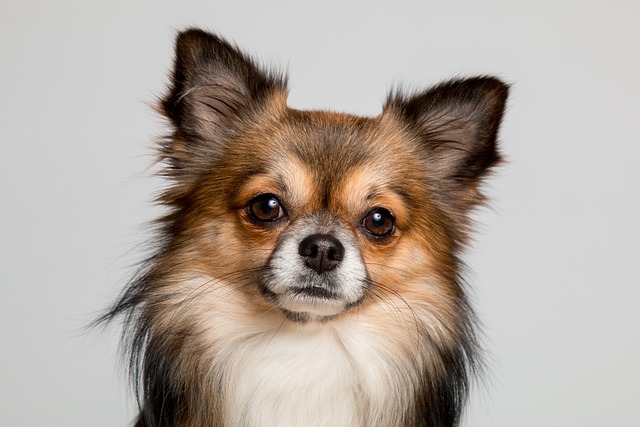
In conclusion, this complete guide to Chihuahua dogs has provided a comprehensive overview of this charming and unique breed. Throughout our exploration, we’ve highlighted the rich history, distinctive characteristics, and essential care considerations that make Chihuahuas such special companions. From their small size and big personalities to their loyalty and intelligence, Chihuahuas have captured the hearts of many dog lovers. Whether as loving family pets or spirited companions, Chihuahuas bring joy, affection, and companionship into our lives. As you embark on your journey with a Chihuahua by your side, may you cherish every moment together and appreciate the special bond that these remarkable dogs can create.












